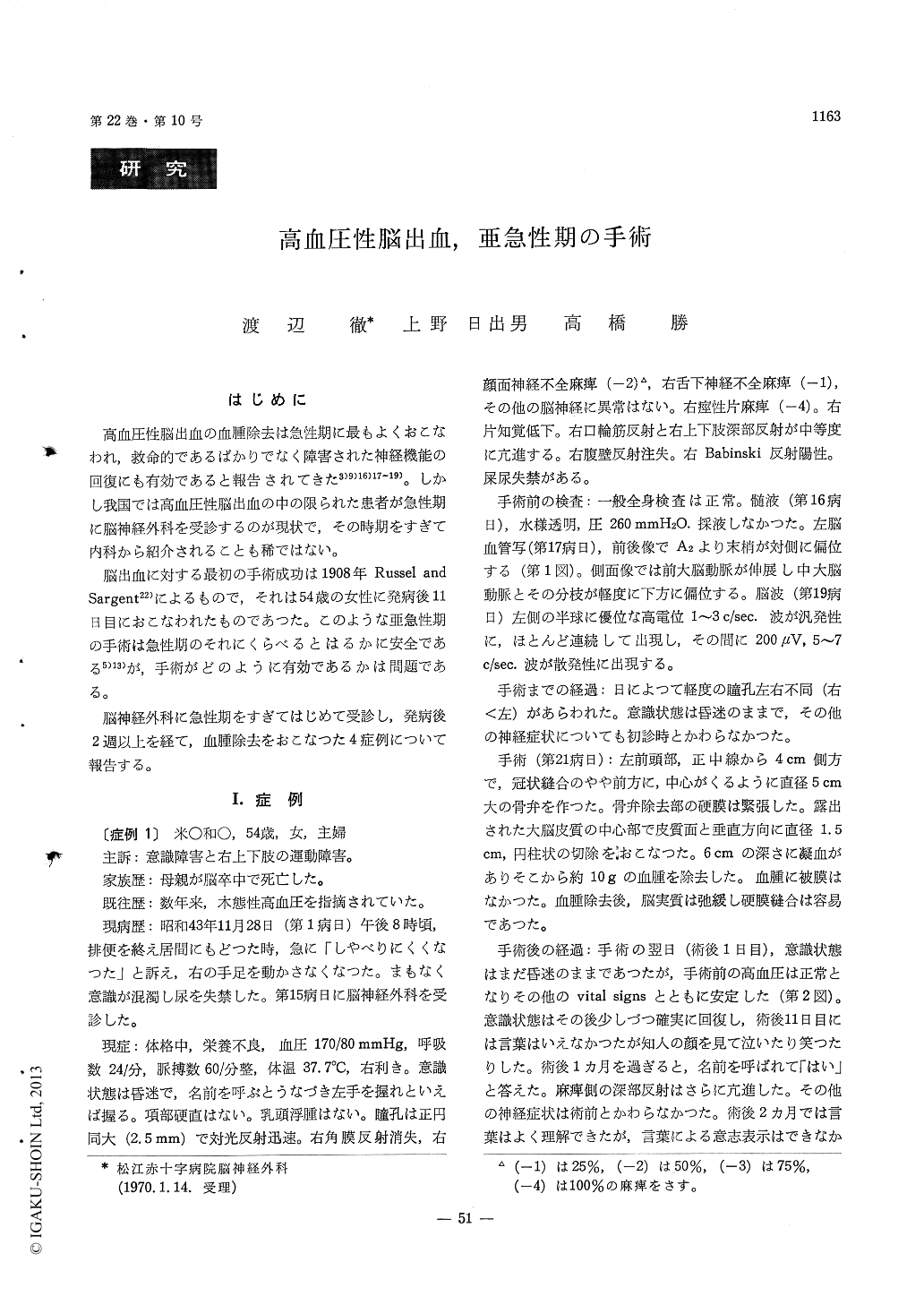Japanese
English
- 有料閲覧
- Abstract 文献概要
- 1ページ目 Look Inside
はじめに
高血圧性脳出血の血腫除去は急性期に最もよくおこなわれ,救命的であるばかりでなく障害された神経機能の回復にも有効であると報告されてきた3)9)16)17〜19)。しかし我国では高血圧性脳出血の中の限られた患者が急性期に脳神経外科を受診するのが現状で,その時期をすぎて内科から紹介されることも稀ではない。
脳出血に対する最初の手術成功は1908年Russel and Sargent22)によるもので,それは54歳の女性に発病後11日目におこなわれたものであった。このような亜急性期の手術は急性期のそれにくらべるとはるかに安全である5)13)が,手術がどのように有効であるかは問題である。
Evacuation of hematoma was carried out of four patients in subacute stage of hypertensive intracere-bral hemorrhage.
Case 1. A 54-year-old woman was admitted be-cause of stupor and right hemiplegia fifteen days after the onset. A left frontal craniotomy was per-formed on the sixth hospital day. The removed clot was estimated to be 10 g.
Portoperatively the patient's vital signs changed stable and the neurological status showed gradual improvement. She began to cry or laugh watching her friends on the eleventh postoperative day. One month later, she followed well simple commands although expressive dysphasia and right hemiplegia remained unchanged.
Case 2. A 41-year-old man was admitted be-cause of stupor, dysphasia, and right hemiplegia nine days after the onset. A left frontal craniotomy was performed on the eighth hospital day. The re-moved clot was estimated to be 15 g.
There was partial improvement in consciousness and dysphasia within 24 hours after surgery. The patient was able to respond well to simple questions on the sixth postoperative day. But there was no improvement in the motor deficiency.
Case 3. A 65-year-old man was admitted because of left flaccid hemiplegia and headache eighteen days after the onset. A right frontal craniotomy was performec on the fifth hospital day. The re-moved clot was estimated to be 25 g.
The patient did well postoperatively. Headache subsided two weeks later but left flaccid hemiplegia remained unimproved.
Case 4. A 63-year-old woman was admitted be-cause of receptive dysphasia. Nausea and Vomiting suddenly had developed ten days previously and had been followed by a state of dysphasia on the next day. A left temporo-occipital craniotomy was performed on the third hospital cay. The removed clot was estimated to be 30 g.
Postoperatively the patient did extremely well. Improvement of the receptive dysphasia was corn-complete 10 days later.
It seems reasonable conclude from these experi-ences there are some cases that de well with operative treatment even on the thirteen to twenty three days after the beginning of hypertensive intracerebral hemorrhage.

Copyright © 1970, Igaku-Shoin Ltd. All rights reserved.


